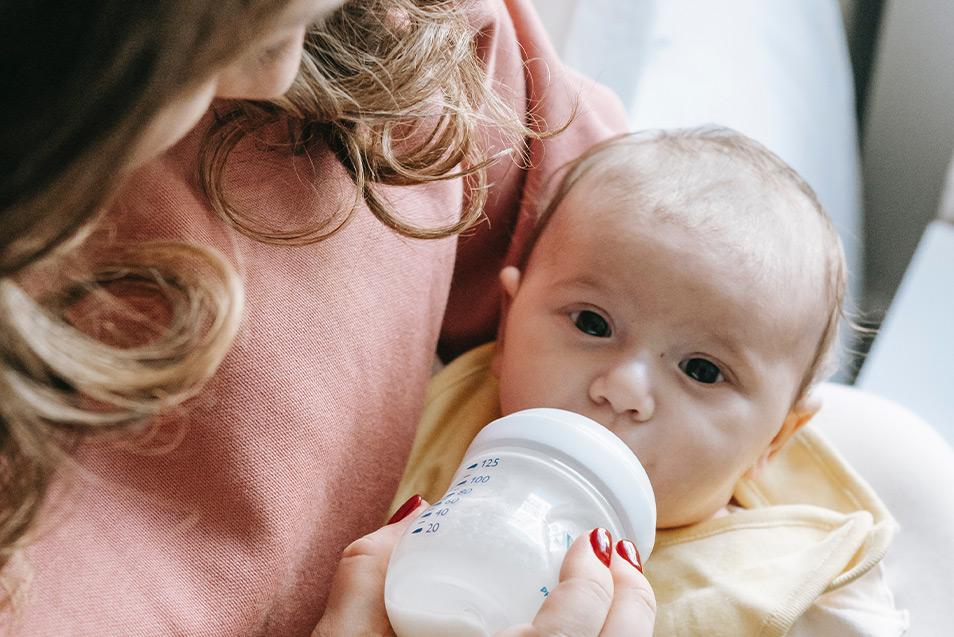Every year, an estimated 10–11% of all births (400,000–440,000 infants) are affected by prenatal alcohol or illicit drug exposure. When it comes to child advocacy, Children’s Mercy Hospital knows the best investment is during early childhood. “The most influential thing in a child’s life is whether or not there was a secure, safe relationship in their first three years of life,” noted Oneta Templeton, Community Programs Manager who oversees the Team for Infants Endangered by Substance Abuse (TIES) program. “I’m proud that Jackson County residents recognize the value of caring for our kids. As the Children’s Services Fund (CSF) cares for our children, it cares for our community.”
The CSF directly funds three key positions — a family support specialist, a family therapist , and a prevention curriculum facilitator — that enable two critical programs at Children’s Mercy Hospital — TIES and ACT Raising Safe Kids. With a vision centered on family and driven by the families they serve, they’re working to identify and support those in at-risk areas of Jackson County through family therapy and prevention education.
Home-based Family Support to Curb Effects of Substance Abuse
Substance abuse has a wide range of effects on infants and young children, including:
- Physical symptoms like feeding problems
- Behavioral challenges like fussiness or jittery behavior
- Birth defects involving the heart, brain, bowel, or kidneys from drug use
They’re also at risk for fetal alcohol syndrome (FAS), and babies who’ve been exposed to drugs, alcohol, or tobacco are at higher risk for SIDS (sudden infant death syndrome).
The TIES program works to identify and support pregnant and postpartum women and their families affected by substance abuse. They provide a family support specialist and parenting specialist to enrolled parents for a weekly in-home visit. While the team at Children’s Mercy are experts in their field, they see parents as the experts of their kids and situations. They’re there to work alongside them, guide them, and connect them to resources.
The benefits are many:
- Reduce drug use
- Promote healthier families
- Increase family stability through education and employment
- Build on family resources
It’s critical to offer services when moms are motivated to use them. Those who don’t get access quickly may not be found later or could return to using substances. The team makes every effort to operate without a waiting list, utilizing partnerships with other organizations around the metro area through referrals.
At a recent commencement celebration, one of the women who received help admonished others currently in the program, “Listen to me. You need to make good use of these folks and their resources. They care about you, they know stuff, and they can help you. Don’t waste this opportunity!”
Teaching Positive Parenting Through Violence Prevention Curriculum
According to Missouri Kids First, the impact of child adversity is substantial:
- At least 1 in 7 children have experienced child abuse and/or neglect in the last year.
- Of 5,465 substantiated cases of child abuse and/or neglect in Missouri in 2018, approximately 30% were cases of physical abuse and 25% were cases of sexual abuse.
- Childhood violence increases the risks of injury, mental health problems, delayed cognitive development, and much more.
- A 2018 CDC report indicates the total lifetime costs associated with just one year of confirmed cases of child maltreatment (physical abuse, sexual abuse, psychological abuse, and neglect) are approximately $428 billion.
Using a 9-week violence prevention curriculum from the American Psychological Association called ACT Raising Safe Kids, Children’s Mercy is helping those in Kansas City’s urban core develop positive parenting skills to counteract these trends. What’s unique about this program is that it’s been proven effective all over the world — in any environment, including socioeconomically-challenged areas.
The curriculum covers a lot of topics:
- Understanding child development
- What to expect from children at various ages
- How to respond to their behavior in positive ways
- Parental anger management — understanding it and healthy responses
- Anger management for children — helping kids through emotion coaching
- Basic conflict resolution
- Violence in the media and how children’s digital lives and content intake can interfere with optimal child development
- Parenting styles
- What discipline means and helping children regulate their emotions
- Intentionally spotting a child’s strengths in their behaviors and working with them
“Though we’re not directly serving the children, we are working with the most influential people in their lives,” says Jeff Matascik, facilitator and trainer for the ACT Raising Safe Kids program. “We’re improving the conditions for our kids and reducing their stress. Parents feel more confident about getting positive results.” And in the process, they’re helping parents connect to other people and resources and engage their community. “They’re learning that there’s nothing wrong with reaching out to ask for help and receiving it.”
Community Partnerships to Reach More Kids and Families
Both of these programs have opened doors of partnership with other organizations in the Kansas City and Jackson County areas. From schools, childcare centers and worship facilities to their referral partners in public health, early childhood development and even the Missouri Children’s Division or Jackson County Family Court, Children’s Mercy has assembled a consortium that, through coordinated efforts, can offer more holistic support for families in need.
Two of the most important people on their Advisory Council include alumni who’ve been through the programs. “They have experience. They know what these parents are going through and can help advise us on what we should and shouldn’t do,” says Oneta.
Oneta, Jeff and their teams are also infinitely grateful for CSF’s funding. Without it, they could not offer services without a waiting list. “We’re confident in their board to make good decisions. We appreciate their partnership by acknowledging our expertise and encouraging us to track how far we’ve come.”
Learn more about the Children’s Services Fund and their focus to invest in children and strengthen the Jackson County community. Without their work, our kids and families would not have the support they need to live happier, healthier lives.
Sources:

